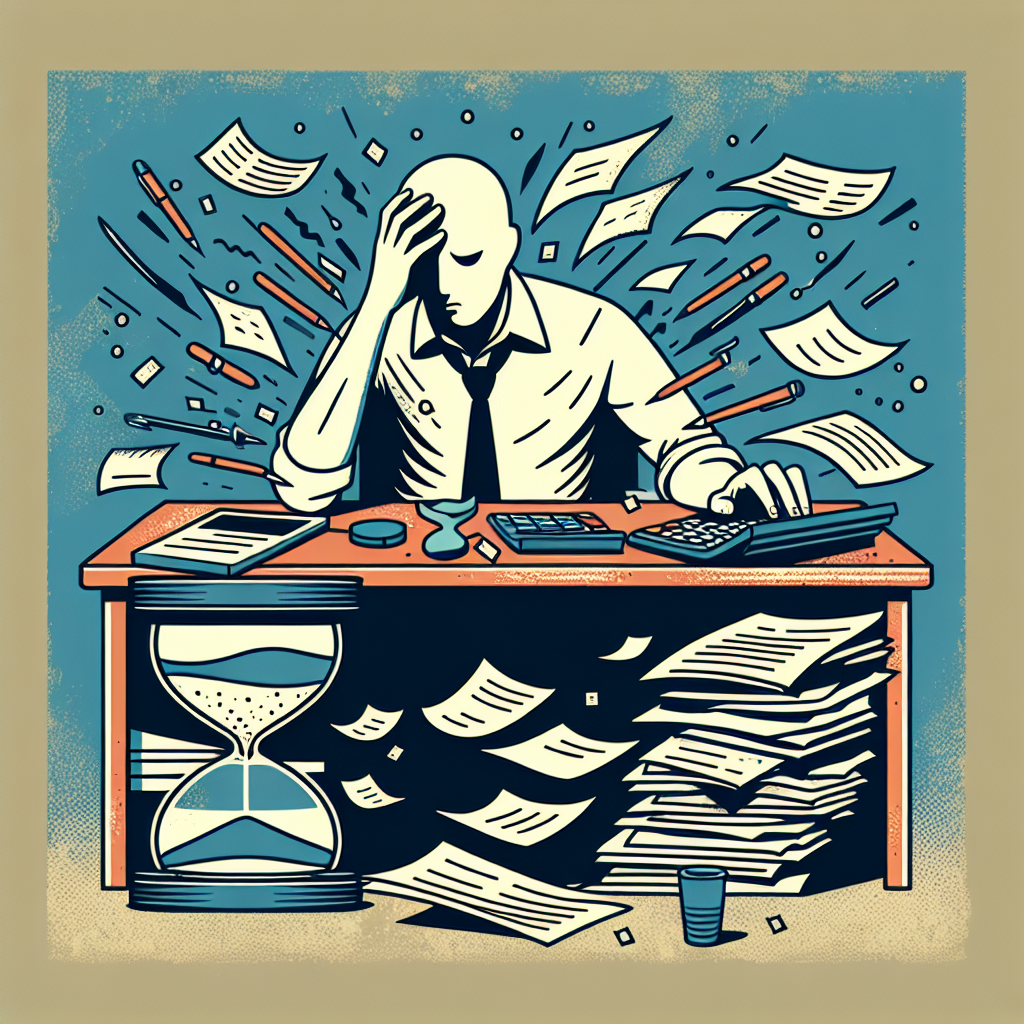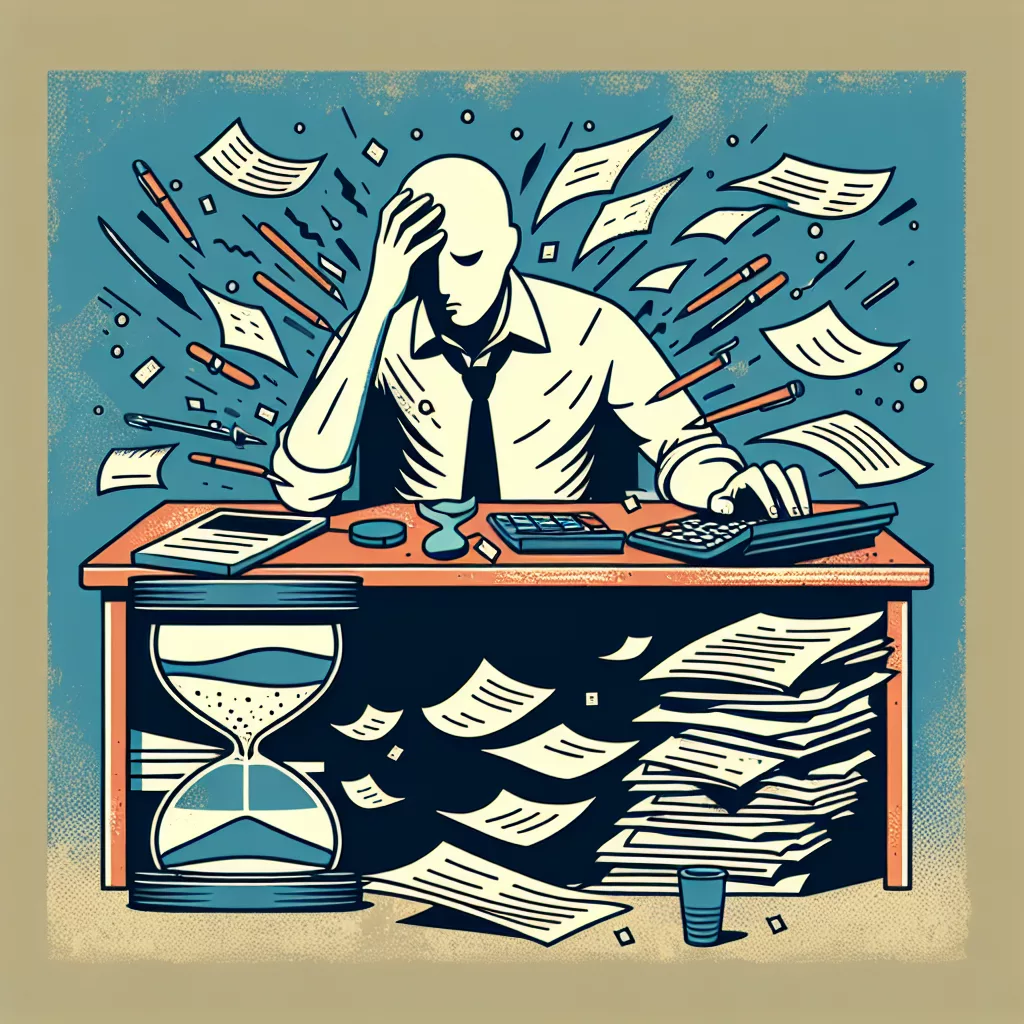In the realm of tax advisory, confronting tight deadlines and complex regulations can elevate burnout risk. Explore how this pivotal role impacts your well-being.

- Heavy workload during tax season increases stress.
- Strict deadlines often disrupt work-life balance.
- Complex and ever-changing tax laws add pressure.
- High client demands can lead to strained interactions.
- Prolonged focus on numbers may cause mental fatigue.
- Long hours can result in inadequate rest.
- Lack of personal achievement recognition contributes to burnout.
Data on career burnout statistics for Tax Advisors indicate that the severity level is Moderate.
Reasons Tax Advisors burnout
According to the science to date there are key reasons people burnout at work. Here’s our top reasons why Tax Advisor in the Finance category has a burnout risk of Moderate:
High Workload: As a tax advisor, you often face intense workloads, especially during tax season. Deadlines can be relentless, and the volume of detail-oriented work may be overwhelming. This can lead to stress and fatigue.
Complex Regulations: The complexity of tax codes requires constant learning and updating of your knowledge. Tax laws frequently change, and you need to be adept at quickly understanding and applying new regulations, which can be mentally exhausting.
Client Expectations: Clients rely on you for accuracy and efficiency, putting pressure on you to deliver flawless results. Managing expectations while ensuring compliance adds to your stress levels.
Lack of Work-Life Balance: The demanding nature of the job can intrude on your personal life. Long hours might be necessary, especially when dealing with high-priority clients, leading to an imbalance between work and home.
Monotony: Repetitive tasks involved in preparing and reviewing tax documents can lead to boredom and a sense of stagnation. If you’re not engaged, this might increase your dissatisfaction with the role.
Limited Career Growth: In some settings, tax advisors may experience limited upward mobility, contributing to a feeling of being stuck in your career. This can affect motivation and lead to burnout.
Understanding these stressors can help you address potential burnout proactively, seeking strategies like better time management or exploring career development opportunities to alleviate pressure.
Burnout rate data for Tax Advisor/Finance
Burnout among finance professionals, including tax advisors, is a growing concern. While specific data on tax advisor burnout may be limited, numerous studies highlight burnout in the finance sector. The demanding nature of tax deadlines and constant policy changes contribute to stress. Many finance professionals report long hours, high pressure, and insufficient work-life balance, increasing burnout risks.
Research shows this can affect job performance, satisfaction, and mental health. Organizations like Deloitte and the Harvard Business Review have explored this topic extensively. For example, Deloitte provides insights into employee experiences in finance occupations (https://www2.deloitte.com). Meanwhile, the Harvard Business Review discusses stress factors impacting finance workers broadly (https://hbr.org/). Understanding these challenges can help create strategies to mitigate burnout risks in your work environment.
Do you have experience of Burnout as a Tax Advisor or in Finance?
Share your story about Tax Advisor burnout on our share your story page.
Burnout in Finance
Career Burnout Rates > Burnout in Finance > Tax Advisor Burnout


